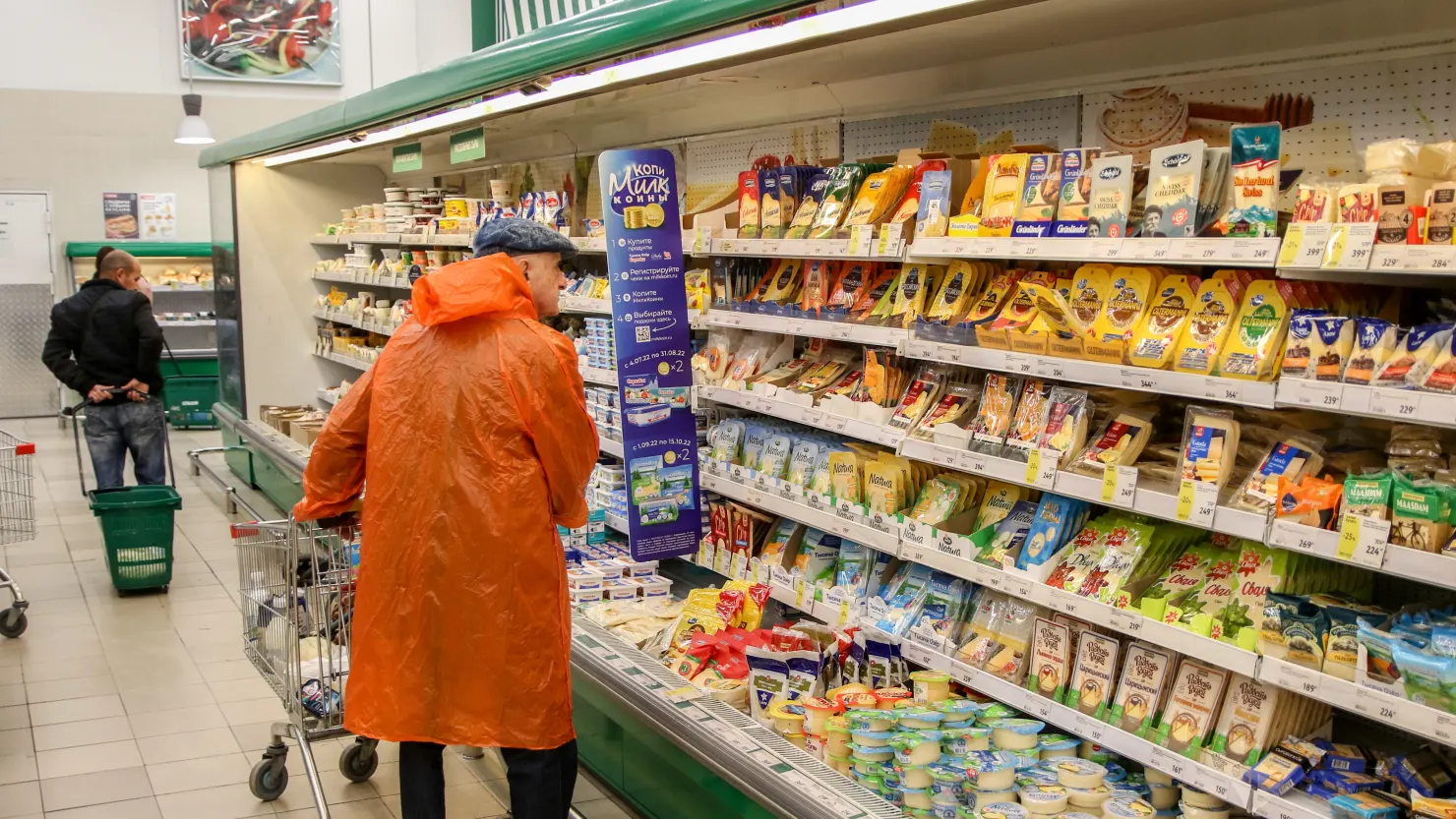

Russia’s central bank is expected to carry out a mammoth rate hike later this week as inflation continues to soar in the war-focused economy. Russia’s consumer price index continues to rise despite repeated rate hikes by the central bank designed to tame the rampant price rises. The consumer price index hit 8.9% in November compared to the same month in the previous year, up from 8.5% in October, driven principally by rising food prices. A weaker ruble — following new U.S. sanctions in November — has also fueled inflation, driving up the cost of imports into Russia, a country whose economy has been hit hard following its invasion of Ukraine in 2022. Read more Russian food prices are soaring — but no one dares blame Putin and the war Russia tries to stem panic over the plummeting ruble, as the central bank is forced to intervene Economists now expect Russia’s central bank, the CBR, to hike rates by 200 basis points at its meeting on Dec. 20 — taking the country’s key interest rate to 23%. “The renewed acceleration in Russian inflation to 8.9% year-on-year in November, and likelihood of further increases in the coming months, argue strongly in favour of another large interest rate hike from the central bank,” Liam Peach, senior Emerging Markets economist at Capital Economics, said in a note last week. Prices are set to continue to rise, he added, with inflation likely to rise “far above” 9.0% year-on-year by the end of 2025. “With firms’ price expectations also hitting new highs recently, there’s a clear argument that the central bank is losing the battle against inflation and that it will be forced to hike rates sharply again ... A 200 basis point rate hike is the base case in our view, but there are arguments in favour of a larger hike,” Peach said. Price rises The central bank enacted a 200 basis point rate hike at its last meeting in October, warning that inflation was running “considerably above” its summer forecast and that inflation expectations continue to increase. “Growth in domestic demand is significantly outstripping the capabilities to expand the supply of goods and services,” the CBR said in a statement. Russian consumers have been hit especially hard as basic foodstuffs, such as butter, eggs, sunflower oil and vegetables, have seen high double-digit price increases as demand outstrips supply. Russia’s war against Ukraine has also caused labor and supply shortages which have pushed up wage and production costs — and these costs have ultimately been passed on to consumers. The government, however, blames the high cost of living on sanctions imposed on Russia by “unfriendly” countries. For his part, Russian President Vladimir Putin has denied swapping “butter for guns.” The International Monetary Fund predicts Russia will log 3.6% growth in 2024 before a deceleration next year, when 1.3% growth is forecast. The “sharp slowdown,” the IMF said, was envisaged “as private consumption and investment slow amid reduced tightness in the labor market and slower wage growth.”